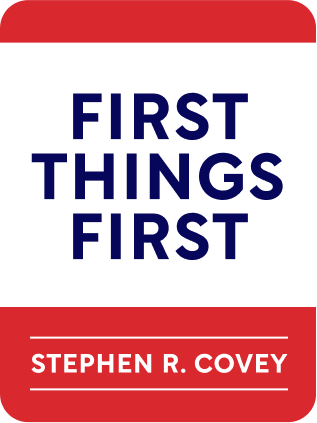

This article is an excerpt from the Shortform book guide to "First Things First" by Stephen R. Covey. Shortform has the world's best summaries and analyses of books you should be reading.
Like this article? Sign up for a free trial here .
Do you want to know how set goals to maximize your chances of achieving them? What are the characteristics of effective goals?
According to Stephen Covey, goals can be counterproductive and even work against you if you don’t set or execute them properly. In his book First Things First, he describes five characteristics of effective goals.
Read more to learn about characteristics of effective goals.
What Are the Characteristics of Effective Goals?
According to Stephen Covey, there are five characteristics of effective goals:
1. They’re conscience-driven. An effective goal isn’t inspired by urgency, it’s not a reaction to another person or an external force, and it doesn’t reflect the social mirror; an effective goal is in line with your mission and true north principles.
2. They’re important. Effective goals are typically Quadrant II goals.
The Quadrant II organizing process focuses on important goals — connecting every “what” with its “why” — so many of your goals will be important rather than urgent.
3. They’re based on our needs and capacities. Most of us focus on goals that meet our physical needs but ignore our spiritual, social, and mental needs. We need to address all our needs and capacities and see their interconnectedness to live a meaningful life.
4. They’re in your Center of Focus. The Center of Focus is the place where your time and energy are best spent.
All the things you think and worry about fall into your Circle of Concern; this includes everything from your health to politics to climate change. Many things in your Circle of Concern are out of your control, and thus are ultimately not worth your energy.
Within the Circle of Concern is a Circle of Influence, which encompasses all the things that you do have control over. The Circle of Influence can be an effective place to focus your energy but doesn’t necessarily help you move closer to your mission.
Within the Circle of Influence is the Center of Focus. This is reserved for things that you’re concerned about, that you have the power to influence, that align with your mission, and that are timely. This is the most effective way to spend your time.
5. They’re determinations or concentrations. A determination is something you’re set and determined to do, no matter what obstacles you face. A concentration is something you choose to focus on and dedicate effort to.
A determination puts your integrity at stake; it’s essentially a commitment you’ve made to yourself. You must make a priority of following through on your determinations in order to keep your integrity high.
A concentration is a milder commitment that doesn’t risk your integrity. This is something you’ve decided to move toward and find opportunities to pursue, but if you don’t reach it you’re not making a withdrawal from your Personal Integrity Account.

———End of Preview———
Like what you just read? Read the rest of the world's best book summary and analysis of Stephen R. Covey's "First Things First" at Shortform .
Here's what you'll find in our full First Things First summary :
- How to work effectively, not just efficiently
- Why you need to think more about what you're spending time on than how much time you're spending
- The 6 steps to effectively schedule and prioritize important activities






